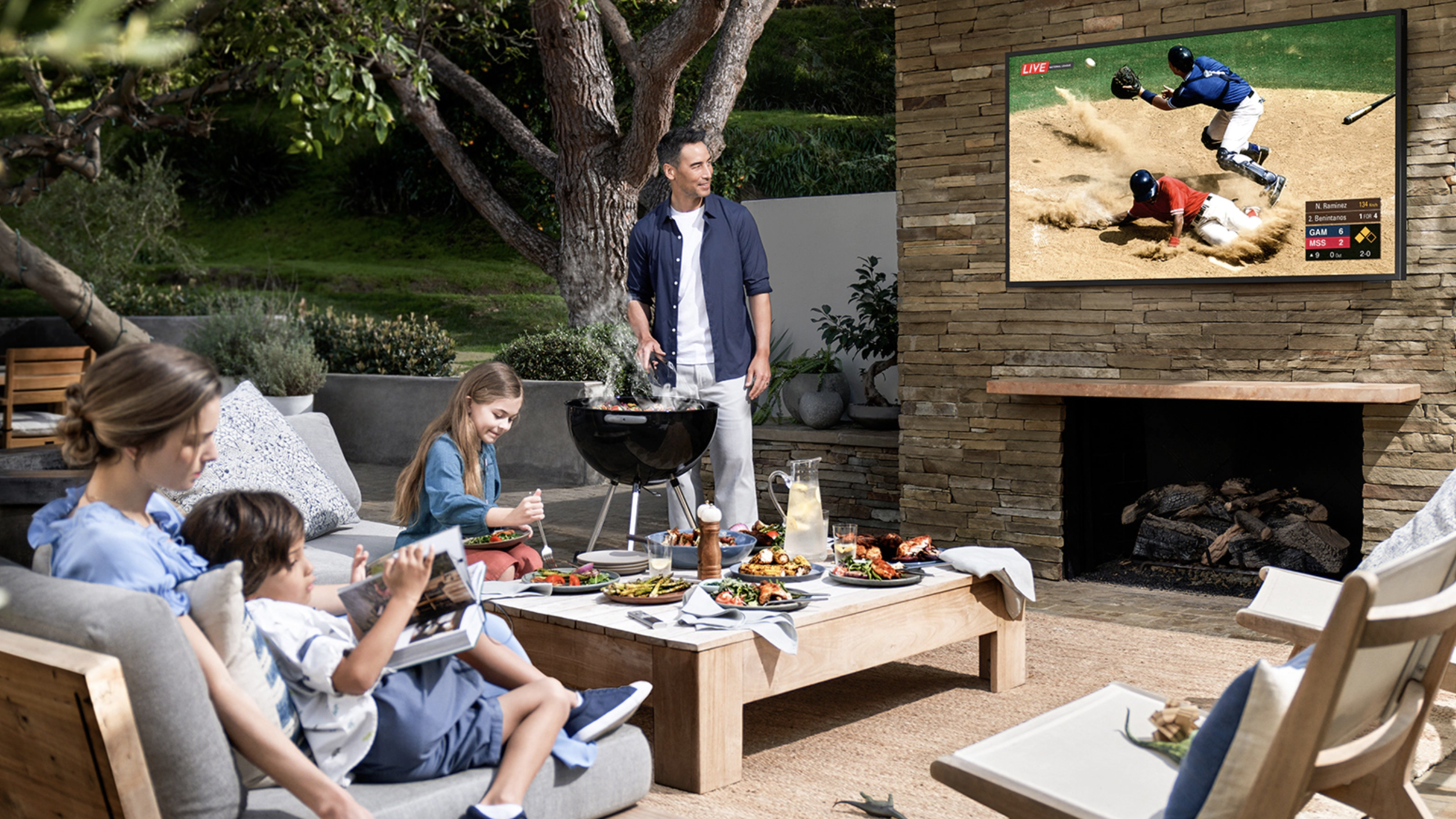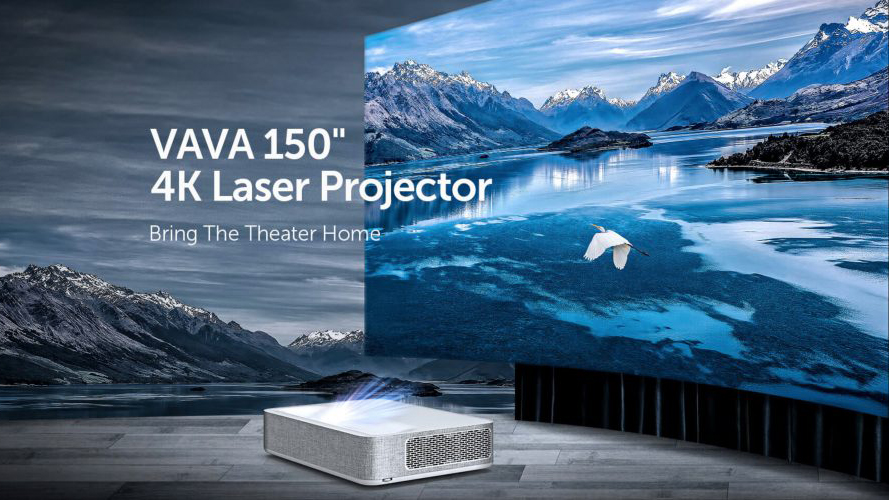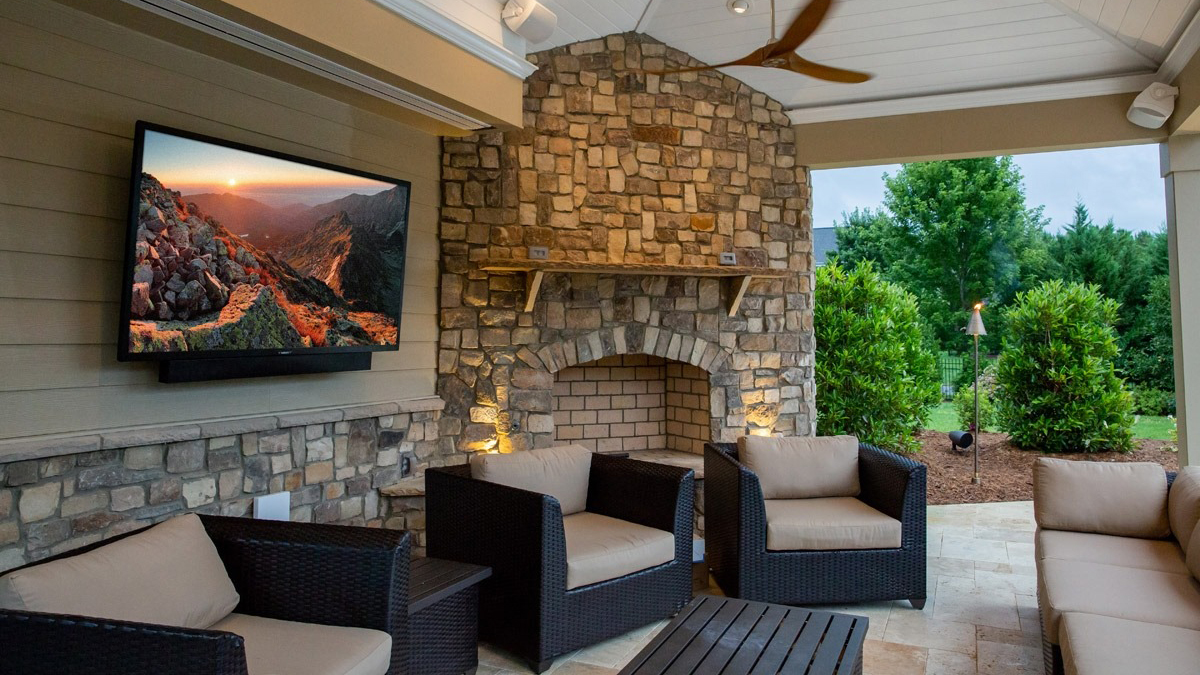Outdoor TV vs outdoor projector: which should you choose?
TVs and projectors serve different purposes

Sign up for breaking news, reviews, opinion, top tech deals, and more.
You are now subscribed
Your newsletter sign-up was successful
What's better, an outdoor TV, or an outdoor projector? It makes sense that you might want to set up an outdoor entertainment area at home, whether that’s in your yard, garden, or out on a balcony.
Between the fact that we’re all stuck inside more than ever, and the fact that the safest way to be near friends is to do so outside and at a distance, an outdoor entertainment area can ensure that we’re all still social and that we get some fresh air.
But if you want to entertain outdoors, you might also want to be able to show games, TV shows, and movies – so is a TV or projector the better way to go?
Outdoor TV vs outdoor projector: screen sizes
Perhaps the first thing to consider when choosing between an outdoor TV and an outdoor projector is just how big of a screen you want. TVs have gotten a whole lot bigger over the past decade or so – but the fact remains that to really get a big-screen experience, you’re going to want a projector. Of course, getting a projector presents its own issues, but we’ll get into those things a little later.
Ultimately, if you want a screen for watching the game and the occasional TV show outside, then a TV is probably more than big enough – but if you want to host impressive movie nights at your home, then you may want a projector that can offer a larger display.
Of course, it’s also worth considering where you plan on placing your projection screen, especially if you want a big one. It’s a good idea to measure the area you plan on projecting to and buying a projection screen that fits that area. Or, if you end up going for a TV instead, making sure there’s a good place to mount it safely.

Outdoor TV vs outdoor projector: lighting
Another major concern is light. Ultimately, you can’t really beat physics -- and that means that if there’s a lot of ambient light in the area you plan on watching, it’s going to be hard to properly see a projector. That’s especially true if you plan on buying a cheaper projector, that might not offer an image that’s quite as bright as a more expensive option.
Sign up for breaking news, reviews, opinion, top tech deals, and more.
Outdoor TV vs outdoor projector: weatherproofing
Perhaps the biggest concern for those placing electronics outside is weather. The fact is that water and electronics don’t really mix well, and that may play into whether you go for a TV or a projector.
Thankfully, some TV manufacturers have been building TVs that are specifically made for outdoor use -- and these TVs are usually contained in a kind of case that protects them from the elements. SunBrite is a good example of a company that makes a range of outdoor TVs, while Samsung offers its weatherproof Terrace TV too.
For TVs, the other option is to get a normal TV that is kept in an element-proof case that can be opened up when you want to use it, or that has a glass front that allows you to still see the screen. The advantage of this is that it’s usually cheaper to buy a lower-end TV and a weather-proof case than it is to specifically buy a weather-proof TV. But the disadvantage is that you’ll have to make sure the case is properly sealed up, and it may add some bulk to your setup.
Projectors introduce a host of other weather-related issues. Unlike TVs, there aren’t really many projectors that are built for outdoor use. Instead, if you want to use a projector, you’re going to have to keep it inside when you’re not using it, and set it up outside when you do want to use it. For this reason, projectors are perhaps better for occasional use, like a movie night with friends, rather than for a permanent entertainment area that you can use on a whim.

Outdoor TV vs outdoor projector: pricing
Of course, perhaps one of the primary concerns for most will be the budget. Thankfully, there are ways to get both outdoor TVs and projectors on a budget.
If you want an outdoor TV, the cheapest way to get one is to get a normal TV and a purpose-built cabinet to keep it in. It’s not as convenient as an actual outdoor TV, but buying both means you can get set up for well under $1,000. If you go this route, any TV will do the job, and it’s worth buying from a big brand like Samsung, LG, Vizio, or Sony. You should also consider looking at reviews for models before buying, and specifically looking for any mention of how the TV handles glare or reflections. The Samsung Q80T series is a good example of a TV that excellently handles reflections and glare to make for a clear image.
If you have the money to spend, it may be worth buying an actual outdoor TV. The cheapest of these are usually around $1,000, but if you have more to spend you can get one that’s larger, supports tech like HDR, has a better image quality, and has smart operating systems built into it. As mentioned, SunBrite makes a range of outdoor TVs, and the Samsung “The Terrace” series is purpose-built for outdoor use too.
Considering the fact that you’re going to have to keep your projector inside when you’re not using it, you can buy a projector across any price range. More expensive projectors offer tech like a higher resolution and smart features, but they’re also often brighter -- which is of concern for outdoor use. We recommend a projector that’s at least 2,500 lumens, but even then you’ll really only be able to see the image well after dark, so something much brighter will be better. Good projector brands include Optoma, LG, and Epson.
Outdoor TV vs outdoor projector: which should you choose?
Outdoor TVs and projectors really serve different purposes. If you want a permanent setup, then you’re probably going to want to get an outdoor TV -- while if you’re only occasionally going to watch outside, a projector that you keep inside and set up when you want it may do the job just fine.
- Need some audio too? Check out these 10 outdoor speakers
Christian is a writer who's covered technology for many years, for sites including Tom's Guide, Android Central, iMore, CNN, Business Insider and BGR, as well as TechRadar.